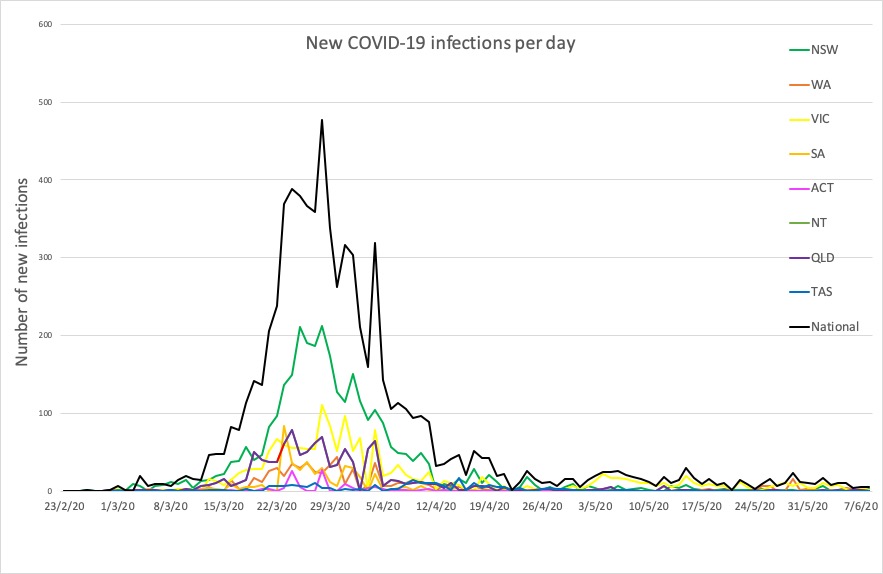Lockdowns in six key countries may therefore have avoided or delayed around 62 million confirmed COVID-19 infections, a study has estimated.
Welcome to The Medical Republic‘s live COVID-19 blog.
Got any tips, comments or feedback? Email me at bianca@biancanogrady.com
The latest
- Afternoon update: Study estimates lock downs have averted tens of millions of COVID-19 infections globally.
- Morning update: Advice from WHO on certifying COVID-19 deaths, and telehealth counselling services for doctors.
- Today’s updated COVID-19 infection figures for Australia, and the ACT breaks its record run of zero infections.
- In the early stages of the pandemic, before large-scale lockdowns, COVID-19 infection rates were growing at around 38% per day, according to an analysis. Lockdowns in six key countries may therefore have avoided or delayed around 62 million confirmed infections.
In a paper published in Nature, researchers looked at more than 1700 non-pharmaceutical interventions – from local to nation-wide – in China, South Korea, Italy, Iran, France and the United States. They then used methods normally applied to measuring the impact of policies on economic growth to see the effects of these interventions on the number of infections over time.
They estimated that there would be 465 times more cases in China, and 14 times more cases in the US, had these large-scale restrictions and anti-contagion policies not been put in place.
“Based on these results, we find that the deployment of anti-contagion policies in all six countries significantly and substantially slowed the pandemic,” the authors wrote.
Meanwhile, a second study, also published in Nature, examined the effect of these interventions in Europe and calculated that they may have averted around 3.1 million deaths in the pandemic.
- The WHO has published updated and detailed advice on certifying deaths from COVID-19, to ensure that all COVID-19 deaths around the world are identified.
On the question of what defines a death due to COVID-19, WHO specifies that this is a death resulting from “a clinically compatible illness” in someone with probable or confirmed COVID-19, unless there is a clear alternative cause of death, such as aortic dissection or having a knee on one’s neck for eight and a half minutes. The definition also stresses there should be no period of complete recovery from COVID-19 between illness and death.
They also addressed the question of patients with underlying comorbidities that may put them at higher risk of death from COVID-19; these pre-existing chronic conditions should be reported in part 2 of the death certificate.
The document includes several examples of possible death certifications relating to or involving COVID-19 to help guide clinicians. - Healthcare professionals can now access up to three free telehealth counselling sessions through the Drs4Drs Support Service, established by Doctors’ Health Services Limited.
According to the AMA, this new mental health support service provides crisis support as well as non-urgent mental health support for doctors and medical students around Australia. The number to call is 1300 374 377 (1300 DR4 DRS) or visit Drs4Drs.com.au.
- There was much wailing and gnashing of teeth in the ACT over the weekend, as the territory recorded its first new case of COVID-19 since the 4th of May. The case in question was a returned traveller who remains in quarantine, according to ACT Health.
Across the nation, there were only single-digit increases in infection numbers over the long weekend. Here are the confirmed infection numbers, to 9pm yesterday:
National – 7265, with 102 deaths and 6706 recovered
ACT – 108
NSW – 3112
NT – 29
QLD – 1062
SA – 440
TAS – 228
VIC – 1687
WA – 599




